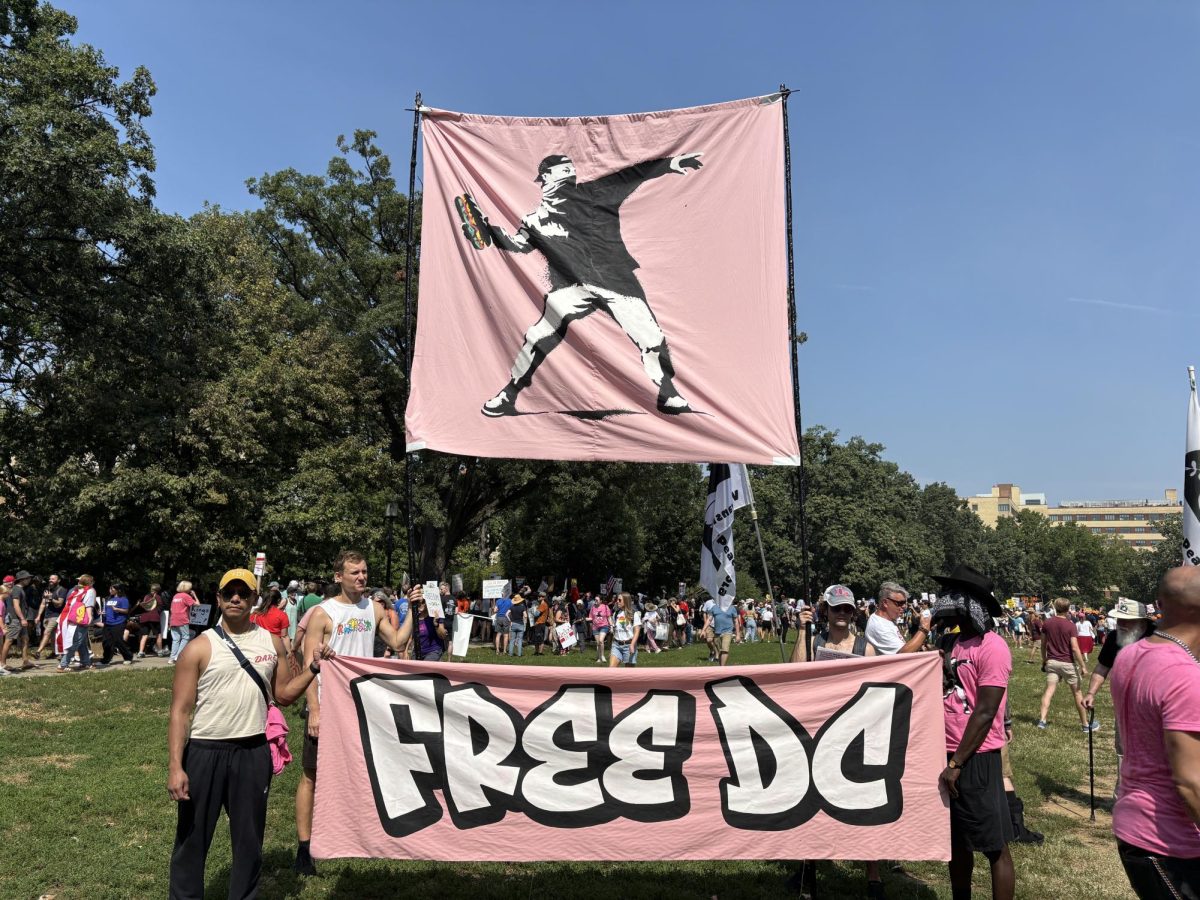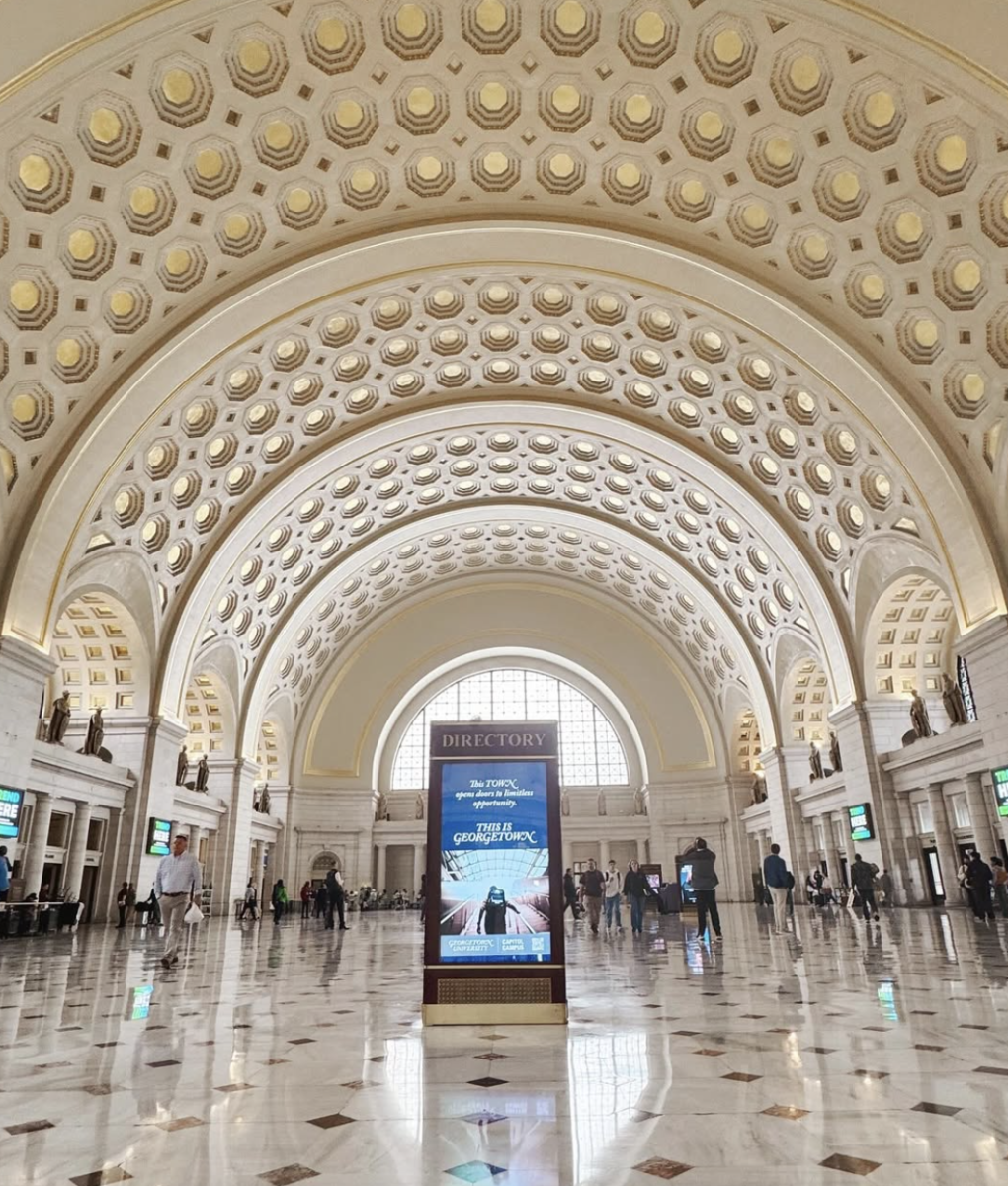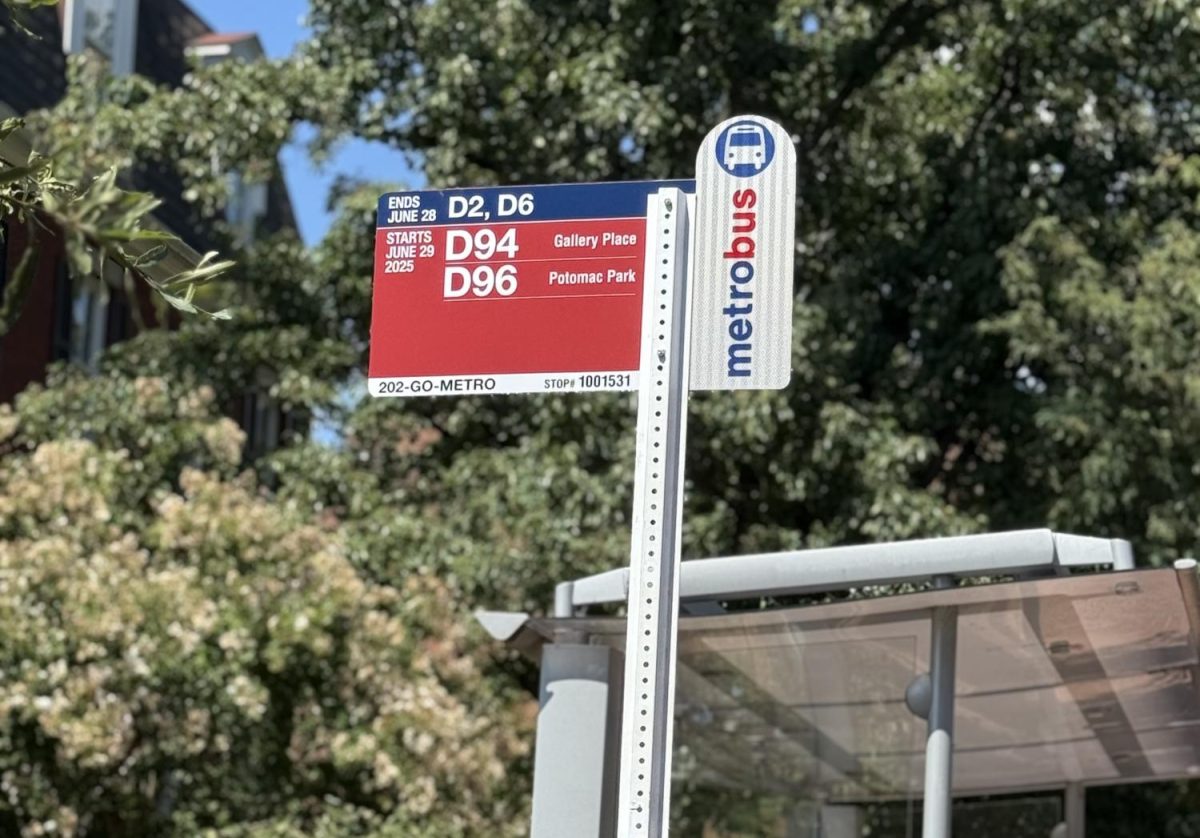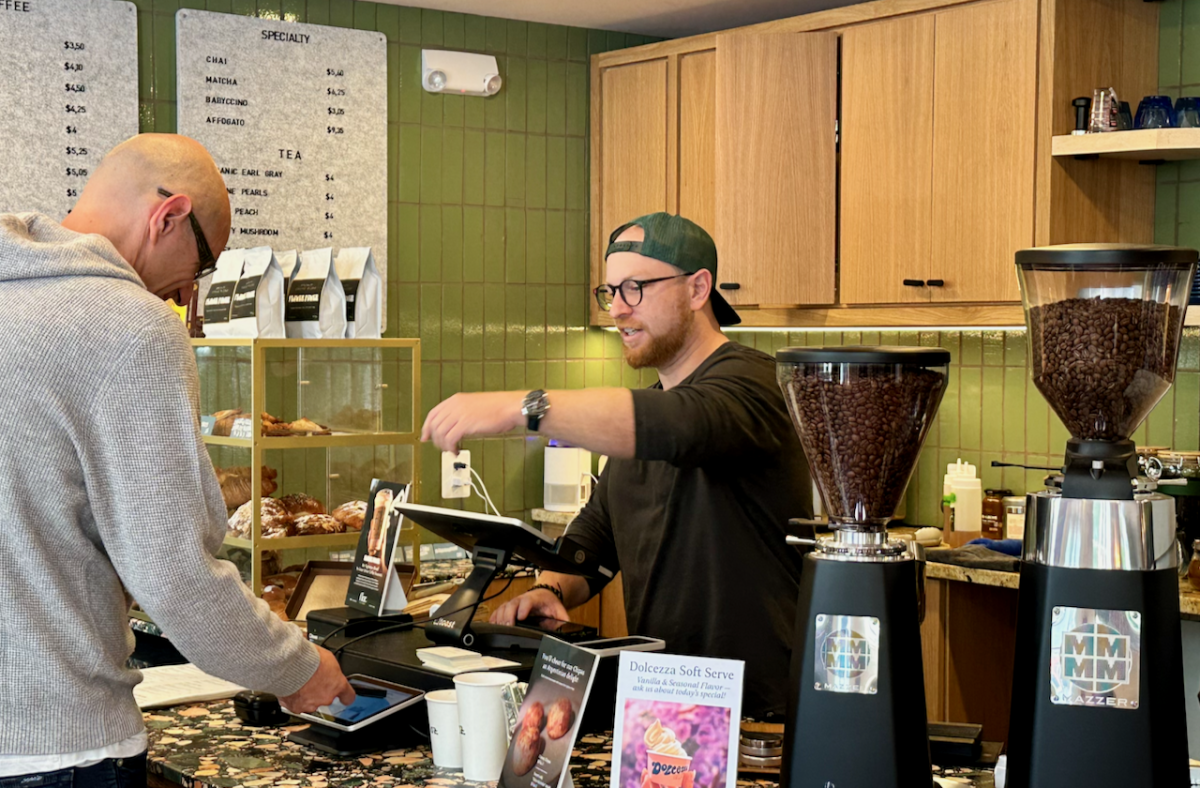The John F. Kennedy Center for the Performing Arts board of trustees elected President Donald Trump as its new chair Feb. 12 after Trump dismissed more than half of the board and appointed a new interim executive director Feb. 10.
Kennedy Center president Deborah Rutter then resigned, according to a statement made to The Hoya, hours after Trump’s election. Trump installed Richard Grenell, former ambassador to Germany and outspoken ally of the president, as the new head of the national cultural center, which frequently partners with Georgetown University.
Maya Roth, director of the theatre program in Georgetown’s department of performing arts, said she is worried the Kennedy Center will not produce diverse programming under Trump, reducing its value to Georgetown as a cultural partner.
“What our students are drawn to is a range of work,” Roth told The Hoya. “And if there’s not a range of work that’s being recognized, and if there’s less educational value and there’s less listening to the work people are interested in doing, then we’re unlikely to engage with the Kennedy Center as much.”
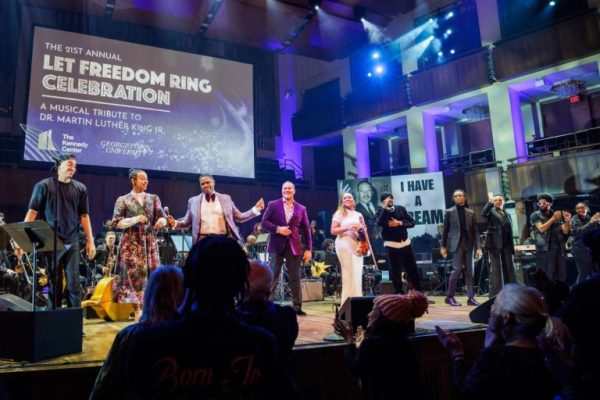
Georgetown frequently partners with the Kennedy Center, including an annual celebration of Martin Luther King, Jr., student discounts, trips to the Center with the performing arts department and student work features at festivals.
Caitlin Cassidy (COL ’11), who produced a project at the Kennedy Center in April 2023 with Georgetown’s Laboratory for Global Performance and Politics, which centers human stories in global politics through theater, said engaging with the Kennedy Center as a student encouraged her to be an artist, an experience she worries future students may not have.
“When I was a student at Georgetown, just having access to a broad, diverse set of artists and work made me who I am,” Cassidy told The Hoya. “It inspired me to become the kind of artist that I am. Seeing my Arab community represented there was game changing for me, and I think that having access, period, is going to be an issue — and then having access to a broad range of work.”
Trump used media and social media posts to cite propaganda against the United States, drag shows that he claimed harmed children and “woke” culture as reasons for the leadership changes.
Roth said Trump’s moves threaten free expression and are concerning for the future of the Kennedy Center.
“This idea of controlling arts and culture — that’s the kind of thing that dictators do,” Roth said. “That is wrong.”
“The idea that programming should be determined by any president is inappropriate — and by a president who has not made art and culture a primary part,” Roth added.
The Kennedy Center, founded by Congress to honor the memory of former President John F. Kennedy through the arts, receives only 16% of its funds from the federal government for operational expenses. While the president appoints and dismisses members of the board of trustees, the Center has a history of being apolitical — half of the board during Biden’s tenure were Trump appointees.
Derek Goldman, executive director of the Laboratory for Global Performance and Politics, said Georgetown will support artists while the future of the Kennedy Center is uncertain.
“Georgetown as a whole, given its broader values and mission — and the lab specifically — is positioned to be really meaningful in a time like this because we’re nimble and we’re all about relationships,” Goldman told The Hoya. “We’re all about human relationships and networks and connecting people at a human level.”
“Ultimately, the arts aren’t done by institutions, they’re done by human beings,” Goldman added.
Anita Gonzalez, a performing arts professor and co-founder of Georgetown’s Racial Justice Institute, which researches solutions to racism, said she is confident artists will be able to create and perform their work elsewhere.
“I’m very sad about the Kennedy Center possibly being gutted or made into a censored space, as I would call it,” Gonzalez told The Hoya. “But there are so many places where performance is done.”
“People make stories all the time, about all kinds of things, and we just need to find venues to put them in,” Gonzalez added. “And if the Kennedy Center is exiting itself out as a venue in which we can participate, I’m sure we will find other venues.”
Goldman said that while he is concerned about the Center’s future, he is wary of panic and finds solace in individual artists’ work.
“It’s a time to actually stay grounded and stay really vigilant in the value and power of the work that we’ve all been doing for decades,” Goldman said. “And that will continue. The importance and role and power of the arts, and the huge communities and sectors that do that, that’s not changing.”



